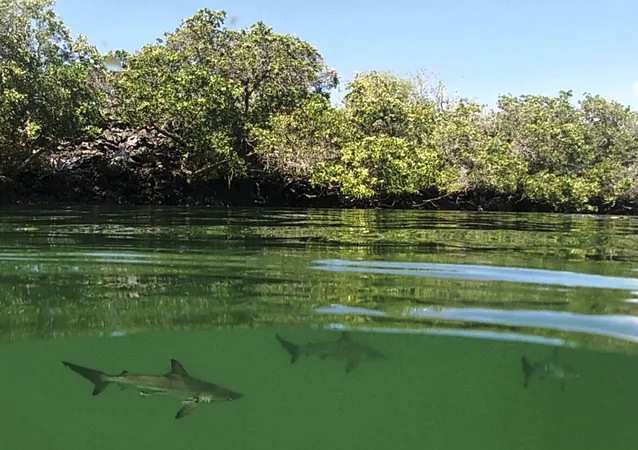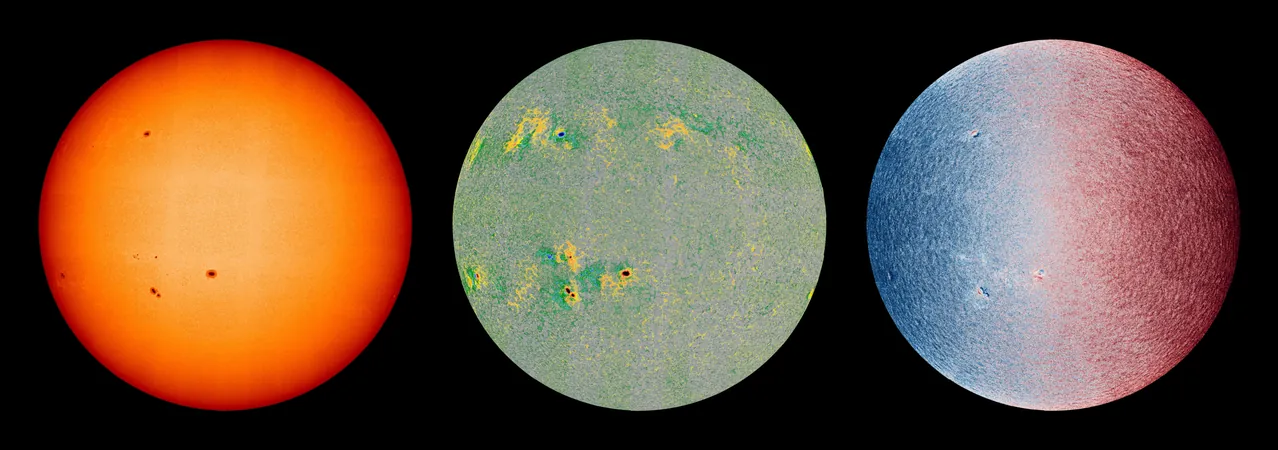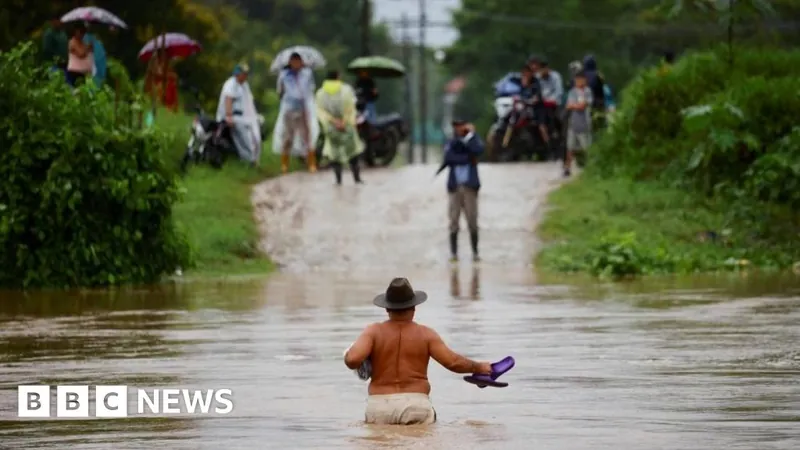
Alarming Decline in Global Freshwater Levels Raises Red Flags for Future Water Security
2024-11-18
Author: Emily
Introduction
A groundbreaking study has shown a staggering reduction in global freshwater levels from 2015 to 2023, compared to the average from 2002 to 2014. Researchers have reported that the volume of freshwater found in lakes, rivers, and underground aquifers has plummeted by around 1,200 cubic kilometers—a shocking trend that began in 2014 and shows no signs of reversing. This situation may indicate that our planet has entered what could be termed a "drier phase," with potential ramifications for millions worldwide.
Impact of Drought Conditions
As drought conditions persist, communities are increasingly relying on groundwater sources to meet agricultural and urban demands. This overreliance leads to accelerated depletion of these vital subterranean resources. With rainfall and snow not sufficient to replenish these reserves, the ongoing over-extraction puts an untenable burden on farmers and local populations, foreseeing potential conflicts over water, rising famine risks, and rampant poverty. Moreover, communities that rely on polluted water sources face a heightened risk of disease outbreaks, leading to a public health crisis.
Research Findings
This alarming research draws upon comprehensive data gathered by the GRACE (Gravity Recovery and Climate Experiment) satellites—a collaboration between NASA and the German Aerospace Centre. These sophisticated satellites measure subtle changes in Earth’s gravity, allowing scientists to monitor fluctuations in water mass, both above and below the surface.
Why Freshwater Decline is a Global Concern
The initial decline in freshwater levels coincided with severe droughts in South America, which later spread to other regions, exacerbated by elevated ocean temperatures between 2014 and 2016. Such climatic changes have noticeably disrupted atmospheric jet streams and rainfall patterns, leading to widespread water shortages. While some areas experienced temporary relief from drought, the overall decline in freshwater levels has yet to recover.
Researchers point to global warming as a potential underlying cause of these troubling trends. A warmer atmosphere can hold more moisture, generating more extreme precipitation events but simultaneously disrupting established water cycles. However, establishing a direct correlation between climate change and freshwater depletion remains complex and requires further investigation.
Urgent Need for Action
The study, recently published in the journal Surveys in Geophysics, underscores the urgent need for innovative freshwater management strategies and adaptation mechanisms in response to the shifting hydrological landscape. Policymakers and scientists must collaborate to develop sustainable solutions that address the real threats posed by declining freshwater supplies, as millions of lives may depend on it.
Conclusion
Could This Be the Wake-Up Call We Need? As water shortages threaten our agricultural systems and overall societal stability, the time for immediate action is now. With communities already facing the dire impacts of such a crisis, can we afford to ignore the signs any longer?









 Brasil (PT)
Brasil (PT)
 Canada (EN)
Canada (EN)
 Chile (ES)
Chile (ES)
 España (ES)
España (ES)
 France (FR)
France (FR)
 Hong Kong (EN)
Hong Kong (EN)
 Italia (IT)
Italia (IT)
 日本 (JA)
日本 (JA)
 Magyarország (HU)
Magyarország (HU)
 Norge (NO)
Norge (NO)
 Polska (PL)
Polska (PL)
 Schweiz (DE)
Schweiz (DE)
 Singapore (EN)
Singapore (EN)
 Sverige (SV)
Sverige (SV)
 Suomi (FI)
Suomi (FI)
 Türkiye (TR)
Türkiye (TR)